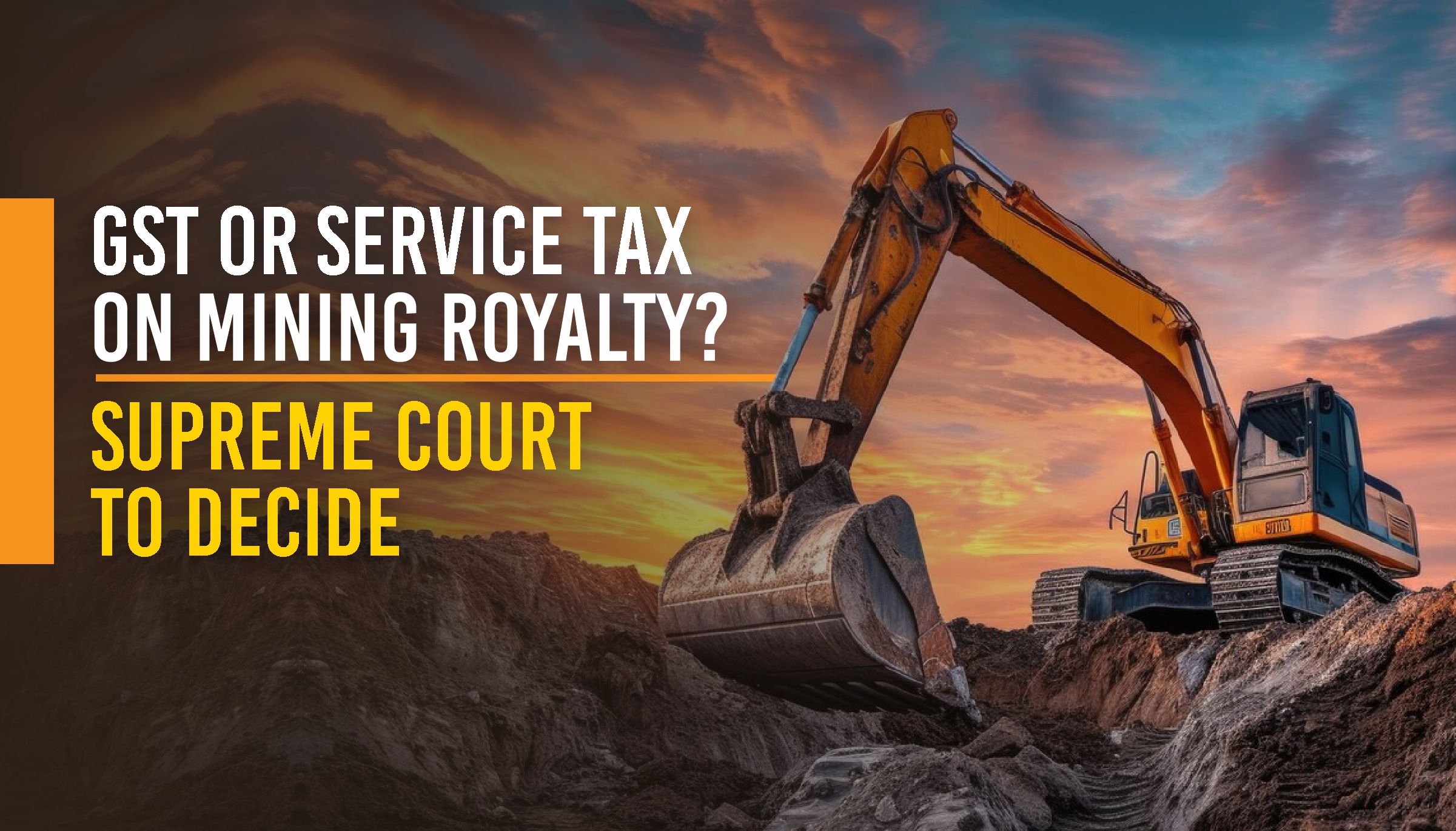GST or Service Tax on Mining Royalty? Supreme Court to Decide

The Supreme Court of India is set to deliberate on whether Goods and Services Tax (GST) or Service Tax is applicable on mining royalty payments. This follows a significant ruling that royalty payments made by mining operators to the government do not constitute a tax, thereby affirming the state’s power to impose cesses on mining and mineral-use activities. The matter is scheduled for hearing in the third week of August, with Chief Justice of India DY Chandrachud and Justices JB Pardiwala and Manoj Misra presiding over the case.
Present Status of GST/Service Tax on Mining Royalty
In 2017, the Rajasthan High Court ruled that the royalty payments by those holding leases for mineral excavation are subject to service tax. This judgment is currently under challenge before the Supreme Court. The core of the debate lies in distinguishing whether royalty constitutes a service or is simply a contractual obligation between the lessor (the government or a private entity) and the lessee (the mining operator).
Recent Supreme Court Judgment on Taxation of Mining Royalty
On July 25, the Supreme Court’s nine-judge bench held that royalty payments by mining leaseholders do not constitute a tax. This ruling clarified that while state governments can impose taxes on mining activities, royalty remains a separate contractual consideration. Section 9 of the Mines and Minerals (Development and Regulation) Act, 1957 (MMDR Act) stipulates that mining leaseholders must pay royalty for any minerals removed or consumed from the leased area.
Case Background: India Cement Ltd. vs. State of Tamil Nadu
The issue initially arose when the Tamil Nadu government granted a mining lease to India Cement Ltd. for limestone and kankar extraction, imposing a local cess under the Madras Panchayat Act, 1958. This cess was challenged by India Cement, with a single judge and later a Division Bench upholding the state’s right to levy it. The matter escalated to the Supreme Court, where a seven-judge bench erroneously equated royalty with tax. This was later corrected by a five-judge bench, emphasizing that royalty is not a tax.
Legal Perspectives of the Case
The Supreme Court’s landmark judgment allows states to impose taxes on mineral rights, overturning a precedent from 1989 in the case of India Cement Ltd vs State of Tamil Nadu. Chief Justice DY Chandrachud clarified that royalties paid to the government by mining companies are not taxes, allowing states to levy additional charges like cesses. One can refer to Section 9 of the MMDR Act regulates the right of a lessor to receive royalty for minerals removed from the leased area. Many industry players feel that the rates of royalty are contractually agreed upon between the lessor and lessee, and not imposed as a tax by a public authority. Royalty is a consideration paid for the extraction of minerals, determined by the quantity removed, and is not a tax. This distinction is crucial as it stems from a contractual obligation rather than a public imposition.
The Supreme Court’s recent ruling has affirmed that states retain the right to tax mineral rights unless restricted by Parliament, with statutory limitations under Entry 50 of List 2 not affecting state taxation. However, Justice BV Nagarathna dissented, arguing that mineral royalties under the MMDR Act are essentially taxes, thus falling under Parliament’s purview. This dissent highlights the ongoing debate about the nature of royalty and its implications for state versus central taxing powers.
Future Implications of the Judgement
The judgment has paved the way for mineral-rich states to potentially increase their revenue through additional cesses and taxes on mining activities. However, the Supreme Court is yet to decide on the retroactive application of this decision, which will be discussed on July 31. This decision will significantly impact pending cases related to erstwhile service tax and GST demands on royalty.
The majority judgment has interpreted the MMDR Act to clarify that royalty paid is a consideration under a mining lease, not an impost or tax. This ruling impacts several writ petitions challenging the levy of Service Tax and GST on royalty, with the court set to clarify the judgment’s prospective application.
In conclusion, while the Supreme Court has clarified the distinction between royalty and tax, the upcoming deliberations will provide further clarity on the application of GST or Service Tax on royalty payments. This decision will significantly affect the mining industry’s financial and operational landscape, balancing state revenue interests with regulatory and contractual obligations.
